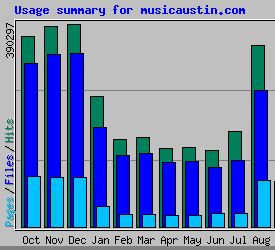Aaron Gustafson, Eric Meyer, and Ed Shull are the panelists for this one. They began by talking about the people who try to cheat their way to good search engine ranking. The search engines usually catch up with this sooner or later and the sites get banned from rankings. Using standards and ethical methods usually work well for SEO.
I’m in the back of the room (need the electricity) and I cannot tell who is talking, so I’m just going to quote in general most of the time.
Ed said to be sure to use a good title. They all stressed writing good copy and making the page valuable enough so that people would want to link to it. Adhering to accessibility guidelines for descriptive anchor tag text and not using ‘click here’ is also a good practice. Regarding title attributes for links as opposed to alt text, make sure that the alt text is useful. Eric did say that when he uses title attributes, he often makes it a joke or something sarcastic, but that he makes sure the alt text is descriptive.
They discussed the h1 element and how it should be used. Many try to make the h1 element match the page title. The h1 should reflect the content of the page.
Sometime the search engines have marginalized the fine points. So for an issue like the hierarchy of heading elements, they suggested using your best judgement.
Following accessibilty guidelines unlocks content and makes it available to the search engines. Good page titles, good navigation, and good anchor text are the lowest hanging accessibility fruit to be grabbing first.
Do sitemaps help? Yes, they provide links to every page for the search engines, and they provide another opportunity for good anchor text.
Can microformats help with SEO? They have potential as a way of adding semantic value that enable particular kinds of searches. As soon as one of the big search engines embrace microformats, then a search something like looking for only the resumes of people who are friends of Jeffrey Zeldman becomes a possibility. This sounds like what Liz Henry was talking about in our butt kicking panel, in looking for a way to identify female bloggers: maybe the answer is microformats.
How can we spread the word that using standards will help SEO? One guy suggested sky writers! More seriously, doing things the right way has a payoff and benefit in terms of search engine rankings so it is a self-enhancing practice.
sxsw


